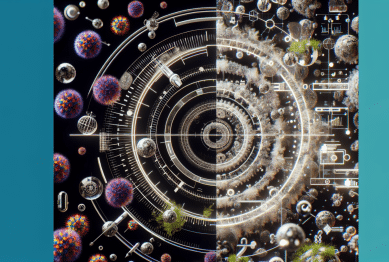Mindfulness meditation is a highly effective way to clear mental clutter. In today’s fast-paced world, it’s easy to become overwhelmed by constant distractions and worries. By focusing on the present moment, we can train our minds to observe thoughts without judgment, which helps gain better control over them. Zeidan et al. (2010) found that just a few minutes of mindfulness each day can reduce stress and improve focus, making it an essential tool for clearing mental fog, boosting cognitive function, and improving overall well-being.

Understanding Mental Clutter: What It Is and How It Affects Us
Mental clutter refers to the overwhelming number of thoughts, worries, and distractions that occupy our minds on a daily basis. It is the constant stream of tasks, ideas, and emotions that we struggle to manage. Much like physical clutter, mental clutter can create chaos in our thoughts, making it harder to think clearly, focus, or make decisions effectively.
When our minds are cluttered, we often find ourselves overthinking or struggling to concentrate on important tasks. This can lead to feelings of anxiety, frustration, and even burnout. In fact, research has shown that mental clutter is a significant contributor to cognitive overload, which can decrease our ability to process information effectively (Sternberg, 2020).
The Science Behind Mental Clutter
Studies have shown that mental clutter can lead to cognitive fatigue and poor decision-making. When our minds are filled with endless distractions, it becomes difficult to focus on the present moment. In essence, we become trapped in a cycle of constant mental activity, leaving us feeling mentally drained and less productive. This is where the practice of decluttering can make a significant difference.
Decluttering your mind involves simplifying your thoughts, organizing your mental space, and focusing on what truly matters. This process can help alleviate cognitive overload and lead to clearer thinking and better decision-making. But how do we go about decluttering our minds?
How to Declutter Your Mind: Practical Tips for Mental Clarity
Mindfulness Meditation: A Powerful Tool
Mindfulness meditation is a highly effective way to clear mental clutter. By focusing on the present moment, we can train our minds to observe thoughts without judgment, which helps gain better control over them. Zeidan et al. (2010) found that just a few minutes of mindfulness each day can reduce stress and improve focus, making it an essential tool for clearing mental fog.
Prioritize Your Tasks
Prioritizing tasks is crucial for decluttering the mind. When everything seems urgent, it can feel overwhelming. Start each day by listing the most important tasks and focus on completing them one at a time. Carver et al. (2017) found that prioritization helps reduce stress and enhances a sense of control, leading to better decision-making and productivity.
Declutter Your Physical Environment
The state of your physical environment directly affects your mental clarity. A cluttered workspace or home can increase stress and hinder focus. McMains and Kastner (2011) found that physical clutter contributes to anxiety and cognitive overload. Tidy up your surroundings to create a peaceful, organized environment that supports mental clarity and productivity.
Set Boundaries and Limit Distractions
Digital distractions are a major contributor to mental clutter. Set boundaries by turning off unnecessary notifications, designating specific times for checking emails, and avoiding multitasking. Rosen et al. (2013) found that reducing distractions boosts concentration and cognitive performance. Setting these boundaries helps maintain focus and prevents the overwhelming feeling of juggling multiple tasks.
Practice Gratitude and Let Go of Negative Thoughts
Negative thoughts clutter the mind, but practicing gratitude can shift your mindset. Emmons and McCullough (2003) found that gratitude reduces stress, improves well-being, and enhances life satisfaction. By focusing on the positive, you can clear mental clutter and foster a peaceful, contented state of mind.
The Benefits of Decluttering Your Mind
Decluttering your mind is not just about clearing space for better thought processes—it also offers a host of psychological and physiological benefits. Here are just a few of the advantages:
- Reduced Stress and Anxiety: By freeing yourself from the constant barrage of thoughts and worries, you can experience lower levels of stress and anxiety. Mindfulness practices, in particular, have been shown to reduce stress and promote emotional regulation (Goyal et al., 2014).
- Improved Focus and Concentration: With fewer distractions in your mind, you can focus more effectively on the task at hand. Prioritizing tasks and setting boundaries helps you stay present and engaged, leading to better outcomes in both personal and professional spheres.
- Better Decision-Making: When your mind is clear, you are better equipped to make informed and thoughtful decisions. Mental clarity allows you to weigh options more effectively, reducing the likelihood of impulsive or regretful choices.
- Enhanced Productivity: A decluttered mind leads to a more organized approach to tasks, resulting in greater efficiency and higher productivity. By eliminating distractions and focusing on what matters most, you can achieve your goals more quickly and effectively.
Conclusion
Incorporating these strategies into your daily routine can significantly improve your mental clarity and emotional well-being. Decluttering your mind not only enhances your ability to focus but also boosts decision-making, productivity, and creativity. By practicing mindfulness, prioritizing tasks, and managing your physical and digital environments, you can create a space for better thinking, emotional balance, and a calmer mind. The benefits of mental clarity extend beyond work and personal life—they contribute to a healthier, more peaceful lifestyle overall, fostering long-term happiness. Start today to reclaim control over your thoughts and experience the transformative power of a decluttered mind.
References:
- Zeidan, F., Johnson, S. K., Diamond, B. J., & David, Z. (2010) Mindfulness meditation improves cognition: Evidence of brief mental training. Available at: https://www.sciencedirect.com (Accessed: 5 August 2025).
- Carver, C. S., Scheier, M. F., & Weintraub, K. J. (2017) Assessing coping strategies: A theoretically based approach. Available at: https://psycnet.apa.org (Accessed: 5 August 2025).
- Goyal, M., Singh, S., Sibinga, E. M., Gould, N. F., Rowland-Seymour, A., Sharma, R., & Berger, Z. (2014) Meditation programs for psychological stress and well-being: A systematic review and meta-analysis. Available at: https://jamanetwork.com (Accessed: 5 August 2025).









